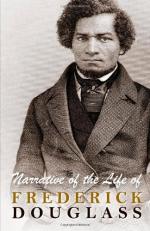|
This section contains 547 words (approx. 2 pages at 400 words per page) |

|
Amazingly enough, slave narratives fell into obscurity towards the end of the nineteenth century, despite their testimonies to the cruel and unjust treatment of slaves by southern slaveholders and their enormous popularity. It was not until the mid-twentieth century that scholars began to investigate slave narratives as literature in their own right. The combination of personal testimony, cultural history, autobiography, antislavery rhetoric, and adventure story created a genre that marked the beginning of an African-American literary tradition. In their preface to the Norton Critical Edition of Narrative of the Life of Frederick Douglass, editors William Andrews and William McFeely write that ' 'The heightened civil rights militancy of the 1960s, along with the rise of Black Studies in the academy, helped resurrect the Narrative and elevate Douglass to prominence as the key figure in the evolution of African-American prose in the antebellum period." With the growth...
|
This section contains 547 words (approx. 2 pages at 400 words per page) |

|




